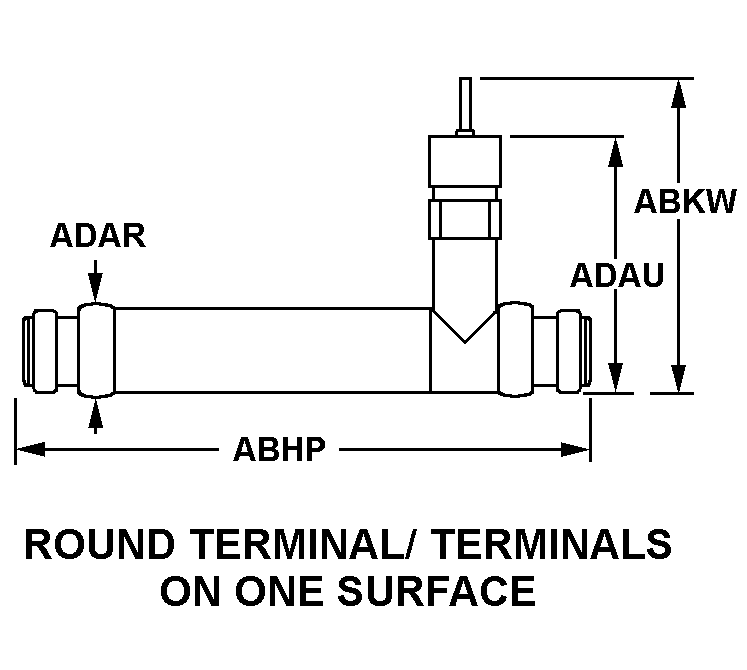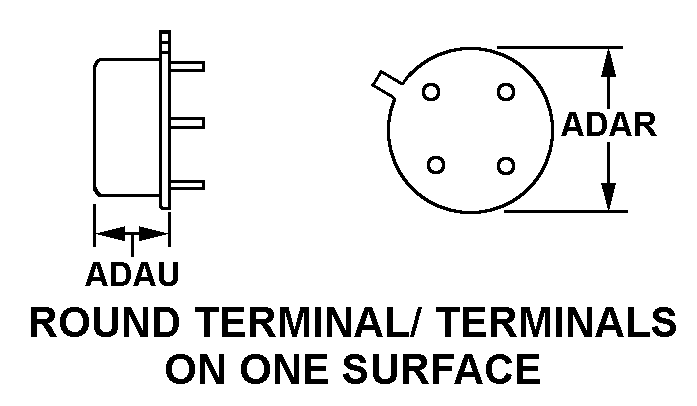5915009382634
Price Quote Get an up to date pricing and availability quote for this product. Order online or over the phone.
Quality Commitment
Serving our customers with quality and safety first.
- AS9120 Certified
- Audited supply chain
- ITAR Registered
- DDTC Registered
- HAZMAT Certified
- Customer service objectives
- Every product 100% inspected

5915-00-938-2634 Specification Set by the OEM (see RNCC code 3)
0.375in.
0.406in.
-55.0/+85.0 deg celsius
32.0 lead styphnate bead pulses per second
75.0 ohms 2nd low pass
50.0 ohms 2nd low pass
INDUCTANCE-Capacitance 2nd low pass
1.5 2nd low pass
hermetically sealed
4 terminal
0.5 2nd low pass
2 pin output 2nd function
1.00 megahertz 2nd low pass and 70.00 megahertz 2nd low pass and 104.50 megahertz 2nd low pass and 139.00 megahertz 2nd low pass
metal
1.00 megahertz 2nd low pass and 70.00 megahertz 2nd low pass
3.0 1st low pass and 40.0 1st low pass
2.0 lead styphnate bead pulses per second and 32.0 lead styphnate bead pulses per second
round terminal/terminals on one surface
Cross Reference Parts Part numbers that meet the specification outlined on this page and set by the OEM
Identification Item Identification Guide (IIG) and Item Name Code (INC)


Definition Definition of approved item name (AIN): "FILTER,LOW PASS"
An item designed to pass all frequencies below a specified frequency. Excludes a single inductance, a single capacitance, or a single resistance. See coil (as modified); reactor; capacitor (as modified); and resistor (as modified).
Packaging & Dimensions Packaging instructions, special markings, and approx. weight/dims
Packing shall be accomplished in accordance with table c.ii for the packing level specified. closure, sealing and reinforcement shall be in accordance with applicable specification for shipping container.
Packing shall be accomplished in accordance with table c.ii for the packing level specified. closure, sealing and reinforcement shall be in accordance with the appropriate shipping container specification.
All packaging data is mandatory for compliance and no substitutions are permitted. fast packs should be included in this category.
Packaging Codes
OPI: Optional Procedure Indicator Code. A one position alpha code that indicates the allowable deviations from the prescribed requirements.
SPI No.: Special packaging instructions number.
LVL A/B/C: Indicates the type of shipping container required for level A, B, or C maximum packing protection.
SPC Mkg: A two position code that identifies the special markings applied to the container, which is part of the total pack to protect the contained item during preservation, packing, storage, transit and removal from the pack.
5915-00-938-2634 Material Hazmat, Precious Metals, Criticality, Enviroment, and ESD
Indicates there is no information in the hmirs. The nsn is in a fsc in table ii of fed std 313 and a msds may be required by the user. The requirement for a msds is dependent on a hazard determination of the supplier or the intended end use of item.
Precious metal content is unknown
The item does not have a nuclear hardened feature or any other critical feature such as tolerance, fit restriction or application.
Identification Codes
HMIC: Hazardous Material Indicator Code. A one position code that identifies a hazardous item.
PMIC: Precious Metal Indicator Code. A one position code which identifies items that have precious metals as part of their content. precious metals are those metals generally considered to be uncommon, highly valuable, and relatively superior in certain properties such as resistance to corrosion and electrical conductivity.
ESD: Electrostatic Discharge. Indicates if an item is susceptible to electrostatic discharge or electromagnetic interference damage. electrostatic discharge damage occurs when an accumulation of static electricity generated by the relative motion or separation of materials is released to another item by direct contact. electromagnetic interference damage occurs when an item comes into proximity with an electrostatic or magnetic field.
ENAC: Enviromental Attribute Code. Identifies items with environmentally preferred characteristics.
CRITL: Criticality Indicator Code. Indicates an item is technically critical by tolerance, fit, application, nuclear hardness properties, or other characteristics.






